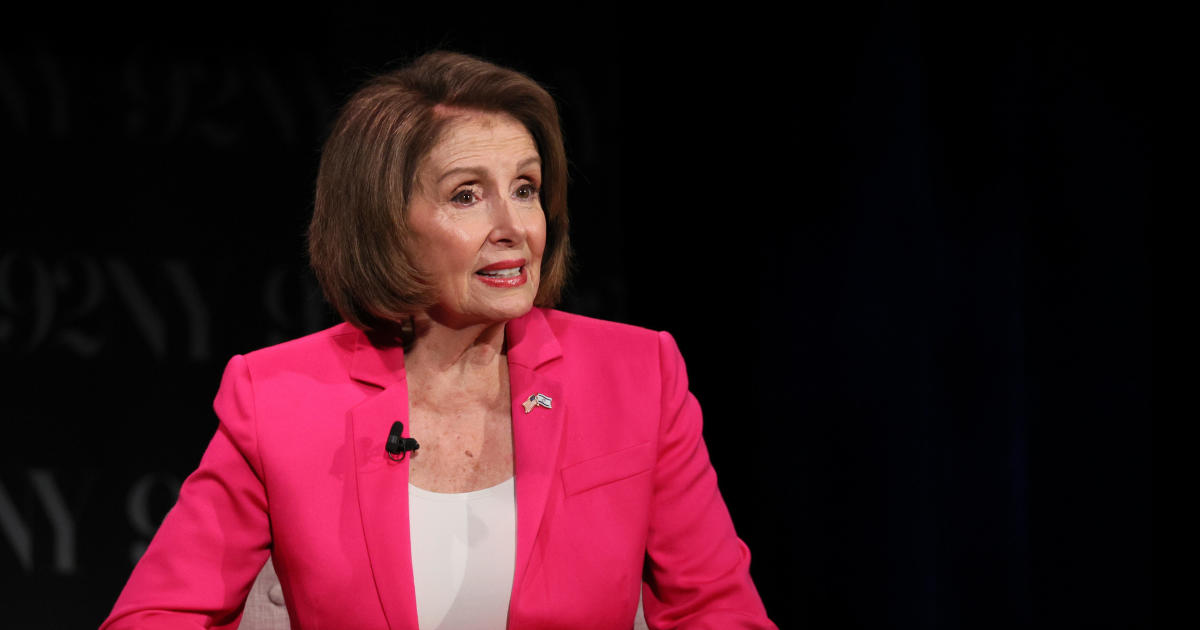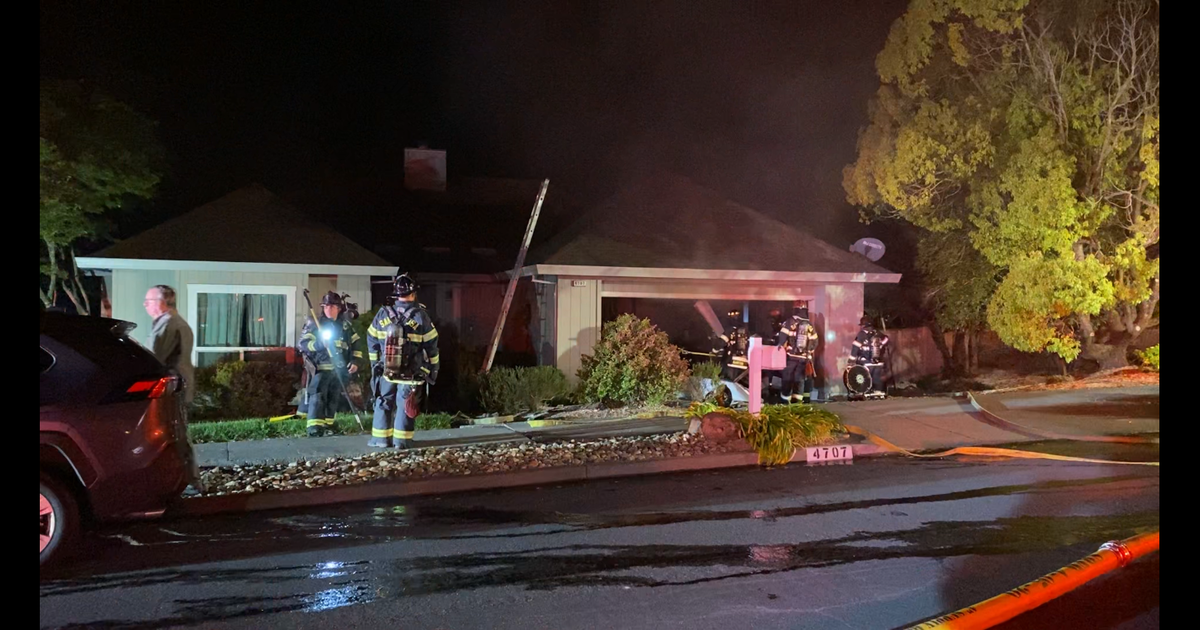Senate Historian Weighs In On President's Options For State Of The Union
SAN FRANCISCO (KPIX 5) -- President Trump announced on Wednesday evening that he won't hold the State of the Union address on January 29 as he originally planned. He said in a Tweet that he will do the address "when the shutdown is over."
While the President was still looking to hold the State of the Union address on January 29, KPIX 5 reached out to Donald Ritchie, the Senate Historian Emeritus and expert on State of the Union rules. Below are his responses to questions posed by KPIX 5 political analyst Melissa Caen.
What is the procedure for the President to address a Joint Session of Congress?
Usually, the Speaker of the House and the Majority Leader in the Senate informally agree on a date and time for a speech, "then Congress formalizes it with a Concurrent Resolution so that everything is done above board and makes it legitimate. So the concurrent resolution is necessary. It's usually fairly automatic once the leaders have made that decision," said Ritchie. While it's usually a formality, it must be done. "The Presidents only go to the Capitol at the invitation of the congress. They can't invite themselves to go to congress."
What's the significance of Pelosi's letter on January 3 inviting the President to give the speech on January 29th?
That letter was part of the informal process that takes place before the resolution is passed. Says Ritchie, "that was the informal invitation and the resolution would be the formal invitation." In other words, the letter from Pelosi is not a sufficient to allow the President to address a Joint Session of Congress.
If no Concurrent Resolution is passed and the President shows up to the chamber of the House of Representatives on January 29, what will happen?
"Well, the Speaker of the House could probably turn the lights off and lock the door." According to Ritchie, the important thing to understand is that, "the House of Representatives is very much leadership driven. And it's very much a pyramid. The Speaker of the House is on top, and the Speaker is all powerful in the House of Representatives."
We're reading that the President has asked the House Sergeant at Arms to allow a security walk-though in the House in anticipation of the State of the Union address going forward on January 29th. What is the Sergeant of Arms' role here?
"The Sergeant at Arms, like [the other staff] in the House of Representatives, works for the leadership of congress. They are appointed and elected by the leadership and by the member, and they serve to function for the House. The Sergeant for the House, doesn't work for the Senate, doesn't work for the Supreme Court, he doesn't work for the President. So, they will do whatever the leadership of the House chooses." In other words, the Sergeant can say "no" to that request. According to one report, Pelosi told the Sergeant at Arms to reject a prior request.
Must the State of the Union be held in the chamber of the House of Representatives?
No. "The President doesn't have to give it in person in the House chamber. That's not in the Constitution." The President, "can do it in any possible way as long as they send something to congress in some format." The House is the traditional venue because it's big enough to accommodate all the attendees, but Ritchie points out that Eisenhower broadcast his farewell address from the Oval Office.
Could the State of the Union Address be held in the Senate chamber?
Yes. The Concurrent Resolution is necessary to speak in front of a Joint Session of Congress, but either house can vote independently to host a speaker. "Each house of congress runs its own shop - the only thing is, if they want to do something together, they have to have a Concurrent Resolution." The Senate is smaller, so it would not fit as many people as the House chamber, but the Republican majority in the Senate could agree to host the event. "If the Senate wanted the President to [speak] they could have a resolution just on their own."
Planning a State of the Union speech is a big undertaking. Is a week long enough to pull one together?
Yes. "It's not the first time they've done this. All of the branches of government know how they usually operate under these circumstances. I have a feeling that, if they should reach a compromise and come up to a deal and reopen the government, that all those branches of the government would be able to very quickly get their act together. It wouldn't make it any easier, that's for sure. But it's not an impossible situation."
Why is there a requirement that the House and Senate vote to allow the President to come and address a Joint Session of Congress?
It's about separation of powers. "Congress is very conscious of being a separate and equal branch. A lot of Presidents are not as conscious of Congress being a separate and equal branch. Presidents think they're in charge of everything. But the Congress has always got to maintain its independence."
After many years in which Presidents submitted State of the Union addresses in writing, it was Woodrow Wilson who decided to re-start the practice of speaking directly to Congress. Said Ritchie, "He was a political scientist who had written his doctoral dissertation about Congress. And he had in mind that he wanted to be the chief legislator as well as the chief executive. He wanted to be like the British Prime Minister, who is actually on the floor of the Parliament making policy."
"The Congress really didn't see it that way and when Wilson asked to be able to come up in person to deliver a message, not a State of the Union message right away, but one of his legislative messages, the Congress really didn't know what to do. They had a debate about it and they decided, 'Well, if he wants to come, we should invite him to come.'" And thus began the rule that speeches to Congress are only at the invitation of Congress.



